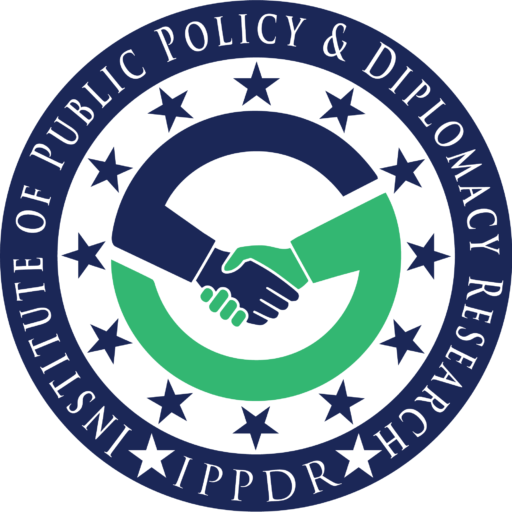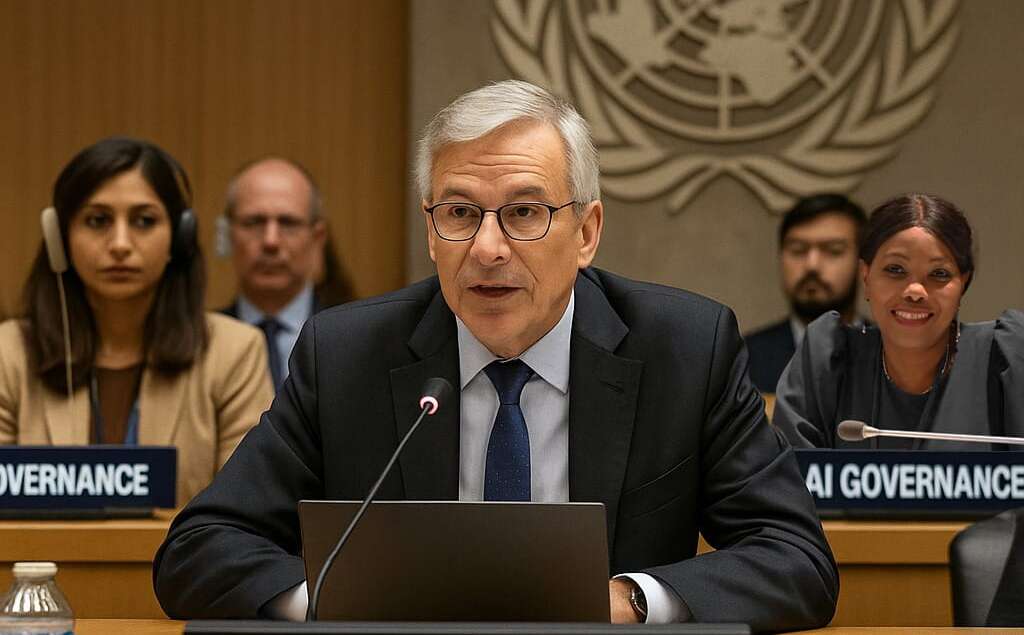Understanding the New UN Resolution on AI Governance
On 26 August 2025, the United Nations General Assembly adopted Resolution A/RES/79/325, a milestone in the international conversation on Artificial Intelligence (AI).
This resolution sets the terms for two new global mechanisms: an Independent International Scientific Panel on AI, composed of around forty experts, and a Global Dialogue on AI Governance that will convene annually to exchange best practices and promote international cooperation.
The first dialogue will be launched during the United Nations General Assembly high level week in September 2025, followed by sessions in Geneva during AI for Good 2026 and New York at the Science, Technology, and Innovation Forum in 2027.
This initiative reflects the commitments of the Global Digital Compact under the Pact for the Future (A/RES/79/1) and builds on earlier resolutions on safe and trustworthy AI for sustainable development, AI in the military domain, and AI capacity building.
Why this matters
A unified global signal
The resolution creates a center of gravity for AI governance at the United Nations, anchoring a science based, inclusive process. For years, the governance of AI has been fragmented across regions, sectors, and industries.
The new Panel and Dialogue offer a coherent forum for states, civil society, academia, and the private sector to share evidence and coordinate responses.
Inclusion and capacity
The resolution underscores the critical importance of developing country participation, calling for intentional voluntary support to ensure their voices are represented. This is critical to bridging the global digital divide and closing capability gaps in AI.
Anchored in human rights and sustainable development
AI governance is explicitly tied to the Sustainable Development Goals and existing commitments under international law and human rights. This continuity ensures that AI is not treated as a separate or exceptional issue but as part of the broader agenda for peace, justice, and sustainable growth.
Challenges and risks
Non-binding and underfunded
Like many General Assembly resolutions, this initiative depends on voluntary contributions and the political will of member states. Without strong financial and institutional backing, progress may be uneven.
Pace of technology
Annual reports and dialogues may struggle to keep up with the rapid pace of AI development. Technologies evolve faster than multilateral processes, raising the risk that governance lags behind real world challenges.
Representation
Ensuring the forty member Panel reflects geographic diversity, disciplinary breadth, youth, disability inclusion, and civil society voices will be a constant test. The credibility of the process rests on preventing dominance by a few states or corporations.
Security concerns
While this resolution addresses governance broadly, AI in the military domain remains only lightly linked. Issues such as lethal autonomous weapons and dual use technologies will require sustained attention under related frameworks.
Implications for stakeholders
Governments
Nominate experts when the UN issues its open call for the Scientific Panel.
Establish a national AI focal point to coordinate across ministries and engage in the Global Dialogue.
Commission national risk benefit assessments, with attention to youth mental health, cyber safety, and critical infrastructure.
Diplomats and Missions
Engage actively in the annual Dialogues in New York and Geneva with cross sector delegations.
Advocate for youth and disability representation within the Panel.
Build coalitions on issues such as transparency, misinformation resilience, and data governance.
Civil Society and Academia
Contribute evidence to the Panel’s assessments, particularly on youth well being, cyberbullying, disinformation, and digital literacy.
Run community-level AI literacy programs and promote healthy digital habits.
Convene multistakeholder consultations to provide national perspectives ahead of each Dialogue.
Private Sector and Technical Community
Share safety evaluations, transparency reports, and technical insights with the Panel.
Support capacity building in developing countries with open tools and voluntary funding.
The role of IPPDR
The Institute of Public Policy and Diplomacy Research (IPPDR) is well-positioned to support the implementation of this resolution. Our priorities include:
Establishing an AI and Youth Mental Health Taskforce to provide evidence for the Panel’s first report.
Hosting consultations in the Dominican Republic and beyond to prepare country briefs for the Global Dialogue.
Training a new generation of Peace Practitioners who understand AI’s risks and opportunities.
Partnering with universities and community organizations to track the social impacts of AI.
Conclusion
The adoption of A/RES/79/325 signals that the world is ready to treat artificial intelligence as a matter of international concern. It sets in motion a process that is both promising and fragile.
The benefits lie in shared knowledge, inclusivity, and alignment with human rights and sustainable development. The risks lie in underfunding, underrepresentation, and the relentless pace of technological change.
Civil society, governments, diplomats, and the private sector all have roles to play. For IPPDR, the priority is clear: to ensure that AI governance protects youth, strengthens peace, and supports sustainable development.

